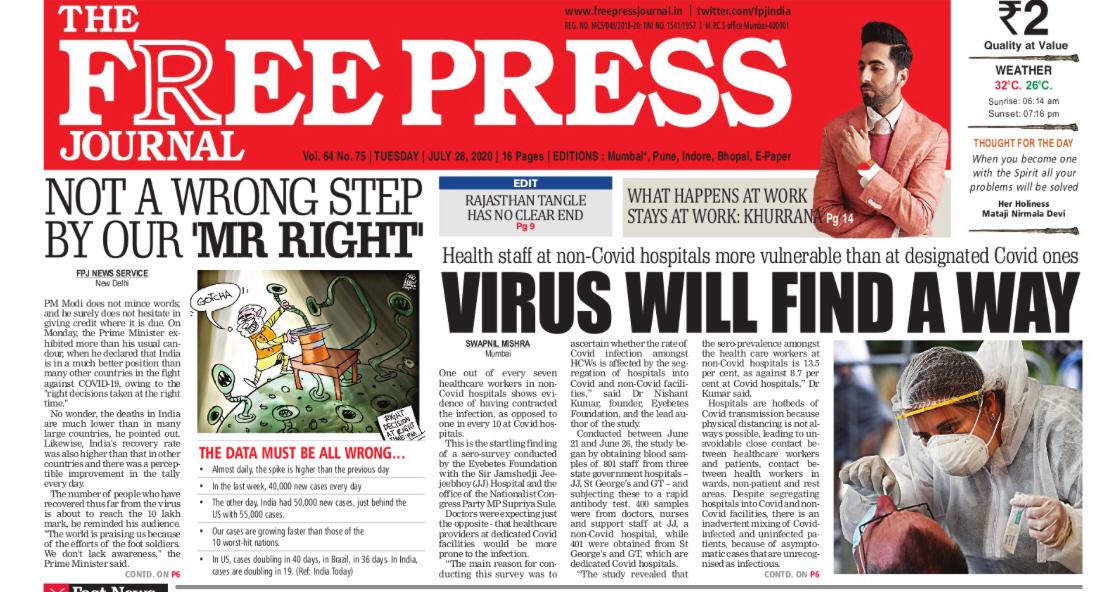One out of every seven healthcare workers in non-Covid hospitals shows evidence of having contracted the infection, as opposed to one in every 10 at Covid hospitals.
This is the startling finding of a sero-survey conducted by the Eyebetes Foundation with the Sir Jamshedji Jeejeebhoy (JJ) Hospital and the office of the Nationalist Congress Party MP Supriya Sule.
Doctors were expecting just the opposite – that healthcare providers at dedicated Covid facilities would be more prone to the infection.
“The main reason for conducting this survey was to ascertain whether the rate of Covid infection amongst HCWs is affected by the segregation of hospitals into Covid and non-Covid facilities,” said Dr Nishant Kumar, founder, Eyebetes Foundation, and the lead author of the study.
Conducted between June 21 and June 26, the study began by obtaining blood samples of 801 staff from three state government hospitals — JJ, St George’s and GT — and subjecting these to a rapid antibody test. 400 samples were from doctors, nurses and support staff at JJ, a non-Covid hospital, while 401 were obtained from St George’s and GT, which are dedicated Covid hospitals.

“The study revealed that the sero-prevalence amongst the health care workers at non-Covid hospitals is 13.5 per cent, as against 8.7 per cent at Covid hospitals,” Dr Kumar said.
Hospitals are hot beds of Covid transmission because physical distancing is not always possible, leading to unavoidable close contact between healthcare workers and patients, contact between health workers in wards, non-patient and rest areas. Despite segregating hospitals into Covid and non-Covid facilities, there is an inadvertent mixing of Covid-infected and uninfected patients, because of asymptomatic cases that are unrecognised as infectious.
Dr Kumar further said, there is an inherent fallacy in the segregation of hospitals as Covid and non-Covid. Patients with acute medical emergencies can be present at either hospital for treatment and it takes at least 24-36 hours to receive the Covid-19 PCR result. “During the initial hours of hospital admission when the PCR status is unknown, a positive patient in a non-Covid hospital is capable of transmitting the infection to others, particularly HCWs,” Dr Kumar added.
Another possible reason for the increased sero-prevalence in non-Covid hospitals could be the false sense of security and complacence arising from the misconception that the health care staff are working in a non-Covid hospital. “Wardboys, ayahs and security guards clearly need better education, and better protective gear,” Dr Kumar said.
This study highlights the fact that all hospitals should be treated as Covid hospitals, as far as protection protocols for the HCWs are concerned, Dr Kumar opined.
